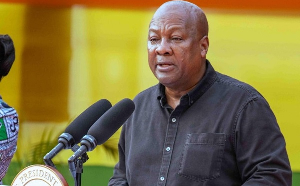By Anthony Kwaku Amoah
I met with the PRO of the GNAT, Mr. Peter Tetteh Korda, at his office recently for updates on some topical educational issues, including the new Education Act 778.
Discussions were cordial, even though, we were meeting for the first time. A copy of the communiqué issued by GNAT, NAGRAT and TEWU on the new Act was given me for close study.
This communiqué was delivered at a press conference by the General Secretary of GNAT, Mrs. Irene Duncan-Adanusa after a five-day workshop in Accra on July 26, this year.
Their statement did expose many inconsistencies and lacunas inherent in the new law in relation to the provisions of the GES Act 506, the Public Services Commission Act (Act 482) and the Local Government Service Act (Act 656). Linking the Education Act 778 to existing Acts, Legislative Instruments and Administrative Instructions, the status of the GES vis-à-vis the creation of National Teaching Council (NTC), National Inspectorate Board (NIB) and National Council for Curriculum and Assessment (NCCA) within the context of decentralization seems hanging.
The GES is a public service under Article 190 of our constitution and also under GES Act 506, with clear functions and membership. The 1994 Public Services Commission (PSC) Act 482, Section 7 names GES as a mandatory institution under the PSC and the Civil Service.
The unions indicate, “The GES Council, even though mentioned in Act 778, has no function assigned it neither is there any legal relation established between the council and the newly created centralized bodies (NTC, NIB and NCCA). By tacit manoeuvres of the law, GES Council exists only by name but not by deeds. “Act 778 Section (3) takes away the core functions of the GES and gives them to the district assemblies and assigns a new function of coordination to the GES in Section (4).” The new law has now made GES employees part of the Local Government Service (LGS) with no linkage between it and the NTC, the new teacher employer and the district assemblies.
The Act has also failed to tell us how employees of the GES would migrate to be part of the LGS without amendments to sections of the constitution and other legislations.
They also inform, “Act 778 is equally silent on what happens to the assets and liabilities of the GES in the event of its integration into the local government service,” adding that apart from the membership of the LGS Council which includes a representation from the GES, “there is no other reference to the GES in Act 656 (Local Government Service Act 2003).”
Also, “the organogram of the Local Government System does not include GES,” and although Section 31 (3) of Act 778 directs that the GES Act (506) be amended to conform to the provision of Act 778, that has not been done. Sadly, non-teaching employees of the GES have not been mentioned anywhere in the new Act, as employees now under the LGS. “The role assigned to the GES in Section 4 of the Education Act 778 is difficult to implement because there is no mention of anybody or agency that reports to the GES. For example, the NIB, NTC and the NCCA, which are centralized institutions within a decentralized environment, are not made to report to GES,” the statement says. The concerns raised by the unions are really loud and clear. Special attention must be given to these concerns by the authorities that be. The success or otherwise of any educational policy or program depends massively on the inputs of teachers. Total condemnation of their concerns may therefore cripple the development of our nation’s education.
Education Minister Lee Ocran also admits, “The law is quiet on the Ghana Education Service so we are having bureaucracies all around”, adding, “The district assemblies would now be responsible for education, not only at the basic level but even at the secondary level. It is a problem because those manning the districts should be of a certain callibre in education.” It is however unfortunate for Mr. Ocran to fume, “They (referring to GNAT, NAGRAT and TEWU) cannot tell us to hold on; the law is the law and the law says we should operate once the law is passed. If they have any suggestion, they should make it but they can’t tell us to stop implementing the law.”
My take on this whole matter is for government to maintain the original structure, as immediate efforts are taken, with support from relevant stakeholders, to strengthen the operations of the GES and the District Education Oversight Committees (DEOCs) to pave the way for quality education delivery. Making GES directors directly accountable to district, municipal and metropolitan chief executives will bring nothing more than unnecessary bureaucracies and politicization of the nation’s education.
E-mail: amoatec27@yahoo.com
Opinions of Friday, 28 September 2012
Columnist: Amoah, Anthony Kwaku














